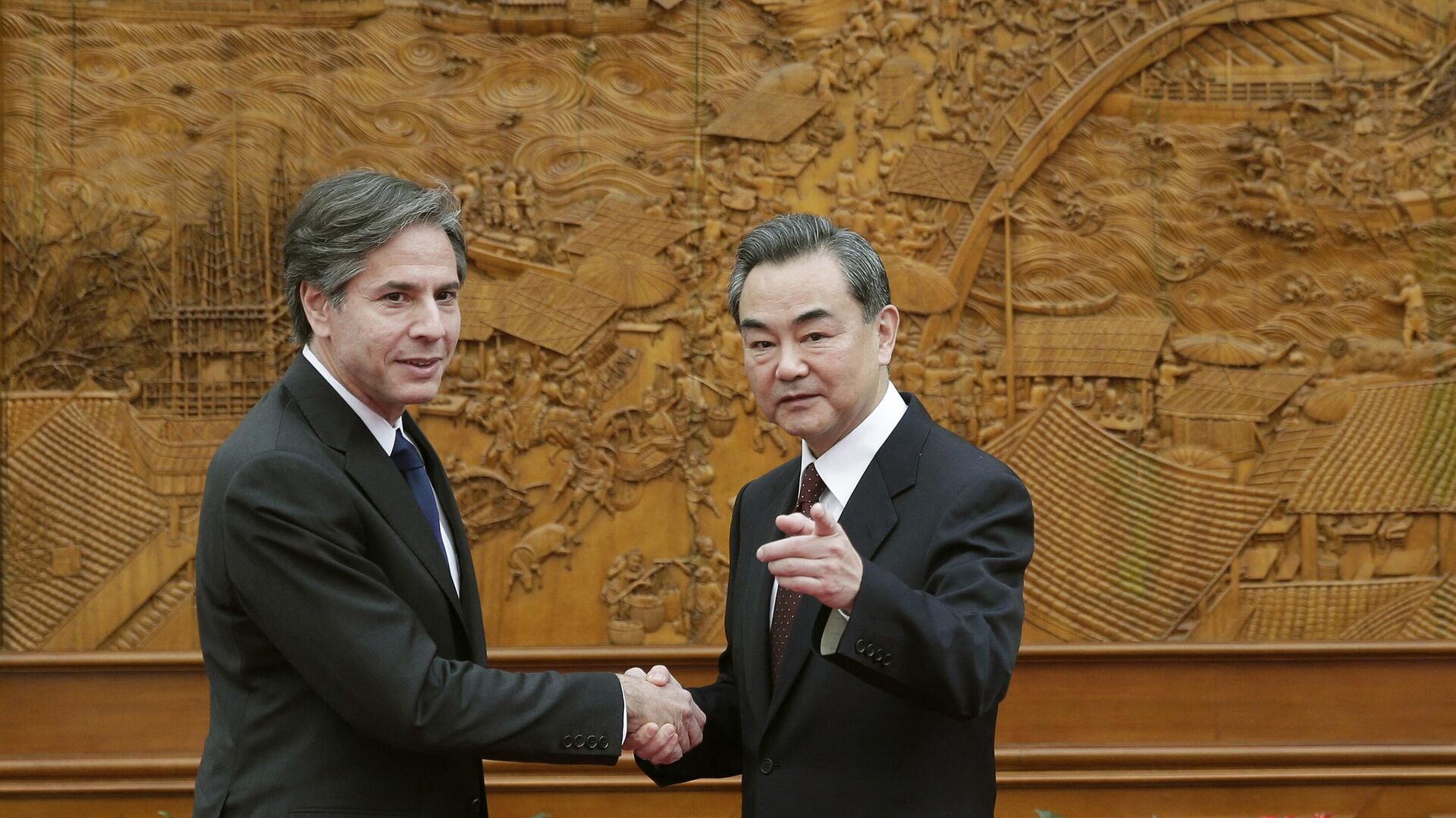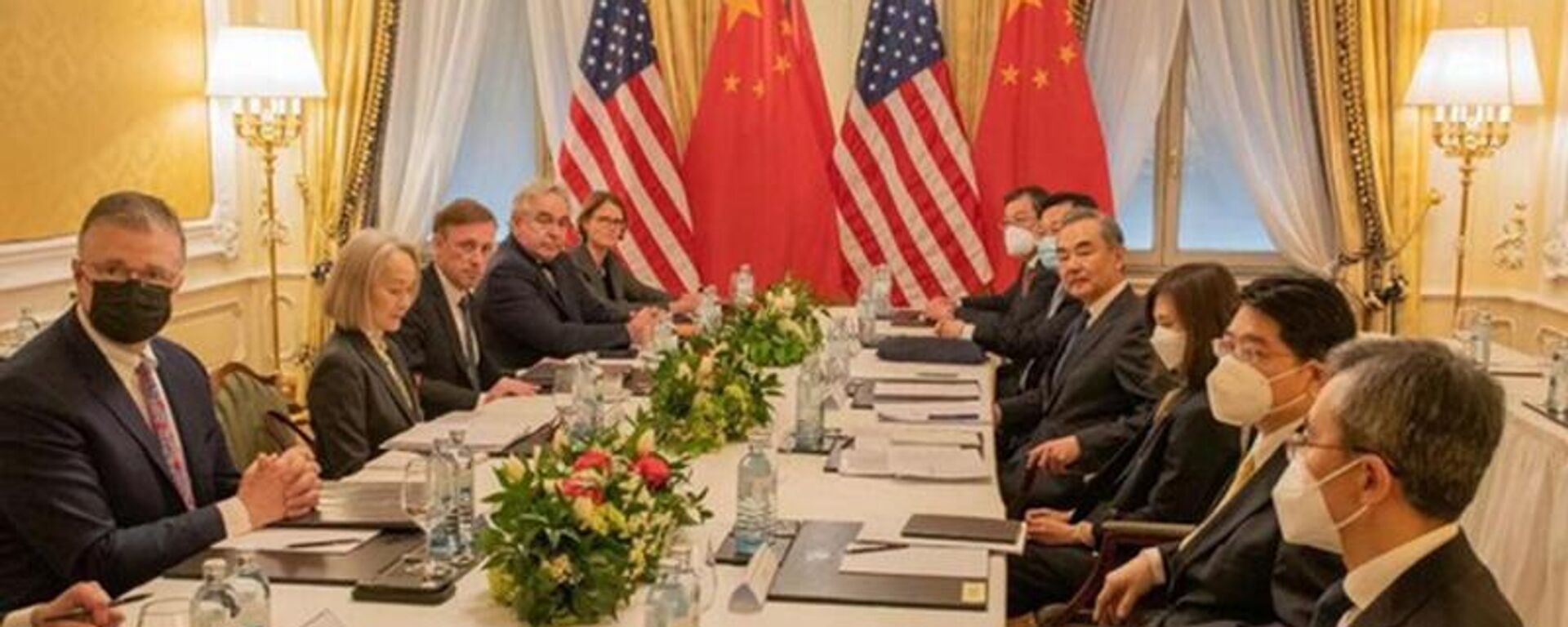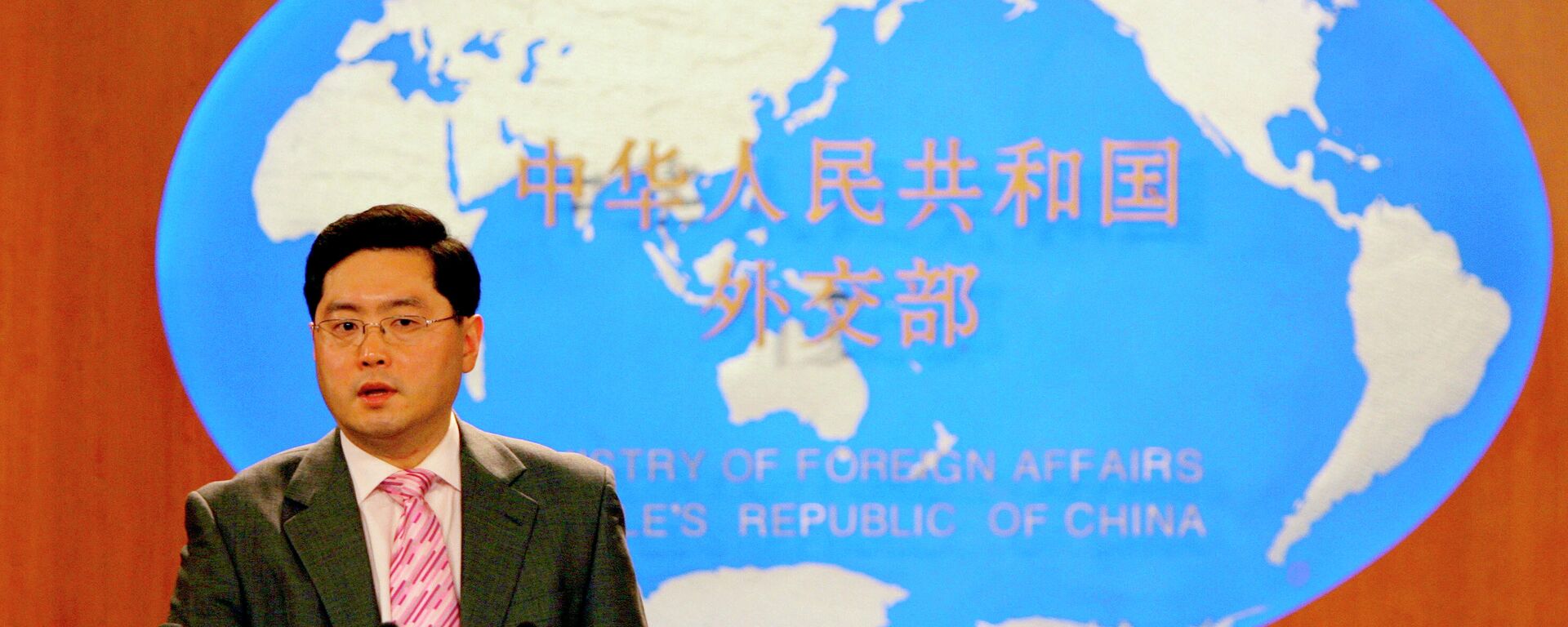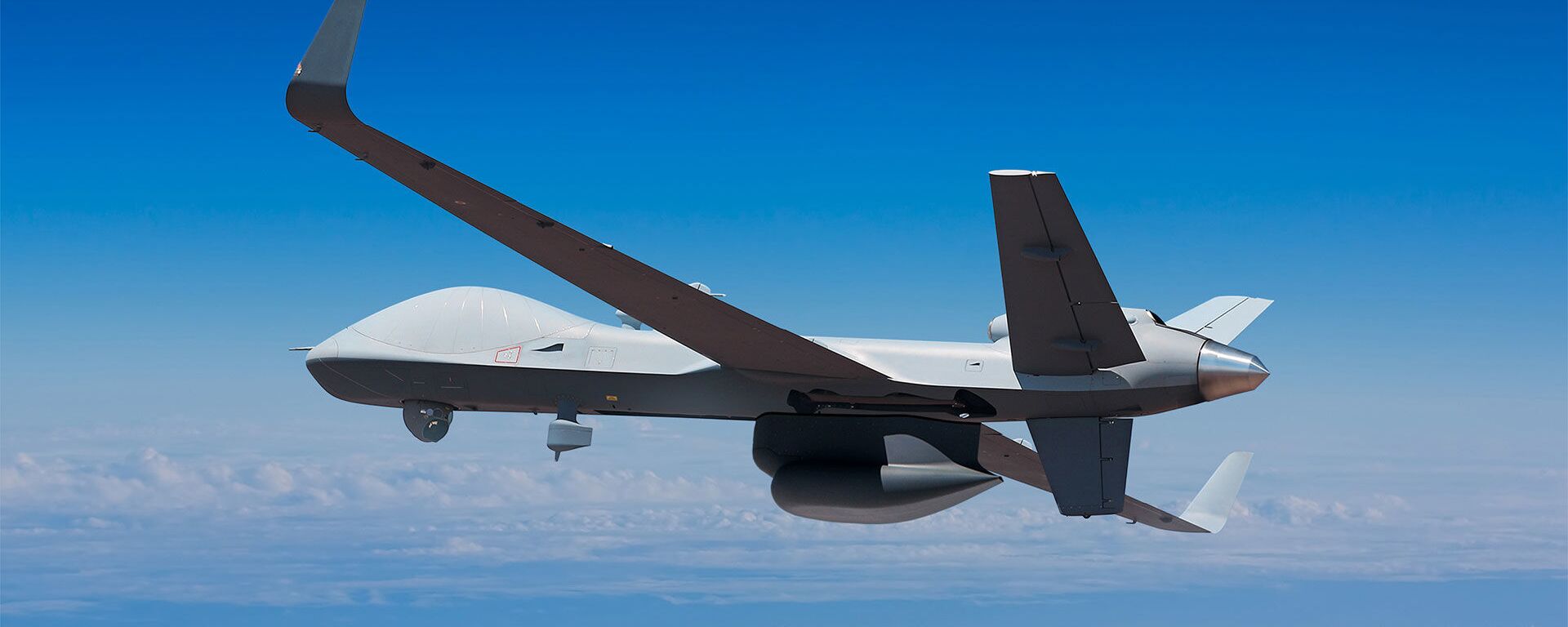https://sputnikglobe.com/20230615/what-to-expect-from-blinkens-big-beijing-trip-1111190663.html
What to Expect From Blinken's Big Beijing Trip
What to Expect From Blinken's Big Beijing Trip
Sputnik International
President Biden announced last month that he expects frozen China-US ties to “begin to thaw very shortly,” with pent up tensions prompting the two powers to postpone talks repeatedly. Secretary of State Antony Blinken is heading to China to try to patch up ties. What issues stand in the way of a genuine rapprochement, and can they be reconciled?
2023-06-15T17:35+0000
2023-06-15T17:35+0000
2023-06-16T04:34+0000
world
joe biden
antony blinken
china
washington
beijing
state department
white house
us
https://cdn1.img.sputnikglobe.com/img/07e7/06/0f/1111190453_0:192:2959:1856_1920x0_80_0_0_15ec64bcd6fde26baec3e52a83096da2.jpg
Antony Blinken will arrive in China later this week, becoming the first US top diplomat to visit the Asian nation in five years, and the first Biden administration official to do so, period.His long-awaited trip, originally expected to take place in February, was postponed after the US military shot down a Chinese meteorological balloon that Washington claimed was a “spy balloon,” and proceeded on a frenzied anti-balloon campaign which led to the destruction of a $12 ham radio hobby balloon and two other unidentified flying objects in the skies over North America, using $440,000-apiece Sidewinder missiles.The secretary of state is expected to depart on Friday, and to travel on to Britain in a trip running June 16-21.Blinken’s visit comes amid a major cooling in relations between the economic superpowers, which US Ambassador to China Nicholas Burns has characterized as the “lowest moment” since US President Richard Nixon’s trip to China in 1972 to establish ties.What are the Issues on the Table?The State Department has dropped hints about what Blinken and his Chinese hosts are expected to talk about during the visit, with discussions expected to include "the importance of maintaining open lines of communication," as well as unspecified “bilateral issues of concern, global and regional matters, and potential cooperation on shared transnational challenges."Assistant Secretary of State for East Asian and Pacific Affairs Daniel J. Kritenbrink said the talks will include a focus on ways to "prevent miscalculation, so as to manage competition that does not veer into conflict," perhaps alluding to tensions in China-claimed areas of the South China Sea, where the US has deployed a steady stream of warships and military aircraft despite warnings from Beijing not to do so.Blinken and his Chinese counterpart Qin Gang spoke by phone on Tuesday to confirm the US diplomat’s trip, with Qin taking the opportunity to rebuke Blinken and lay out Beijing's "core concerns" in its relationship with Washington, including Taiwan, interference in China's internal affairs, and suspected US efforts to "harm" the Asian nation's sovereignty.Blinken’s trip is not mentioned anywhere on the splash screen of the Chinese Foreign Ministry’s website, which at the time of this writing features releases on President Xi's meeting with Russian Prime Minister Mikhail Mishustin, his talks with Democratic Republic of the Congo President Felix Tshisekedi, and China's hosting of the inaugural China-Central Asia Summit.China's Blueprint for CooperationWashington’s tamped down expectations for Blinken's trip even before it starts is logical, given that since his inauguration in early 2021, the secretary’s boss, Joe Biden, has not only continued the toxic technology and trade war with China, but ramped up tensions in other areas as well, especially concerning Taiwan.“Stabilizing China-US relations” can be accomplished without compromising on one another’s national interests, Xie stressed.Thorny ProblemsSo far, Washington has been slow to respond to China’s diplomatic overtures, instead ramping up tensions over the One-China Policy in Taiwan, threatening to come to Taipei’s defense in the event of a Chinese "invasion," and sending a steady stream of senior lawmakers and government officials to the island, despite commitments in treaties underpinning China-US relations which forbid such contacts.The US’ burgeoning arms sales to Taiwan is another thorny issue, with successive administrations ignoring the 1982 communique which requiring the US to gradually reduce its weapons deliveries to the island to zero. Instead, the US weapons contract with Taiwan is now so large that there’s now a $19 billion backlog on equipment to be delivered.Taiwan is not the only area where Washington’s imperious policy has led to complications in relations with Beijing. The deployment of US warships and aircraft in Chinese-claimed waters in the South China Sea is another major source of tensions, with the US military’s continued flights and sailings leading to a growing number of close calls with Chinese vessels and warships, and fears that it’s only a matter of time before someone gets hurt, putting the countries on the brink of war.Finally, there’s the problem of Washington’s finger-wagging at China’s relations with third countries, including Russia, while simultaneously rejecting major Chinese diplomatic initiatives – like Beijing’s 12-point peace plan to bring an end to the Ukraine crisis. After its release in February, Blinken called the peace plan a "cynical trap," while his boss Joe Biden said that it wouldn't be beneficial to "anyone other than Russia.""As the Chinese saying goes," Ambassador Xie recalled in his speech in Washington last week, "'good faith makes good things happen.' Dialogue should be based on mutual respect and aim for real results. It surely is not the right way to seek dialogue and cooperation while putting the other on the sanction list. Dialogue conducted only for its own sake will not work either. Saying one thing but doing another could only bring unintended results."Will Secretary Blinken and other US officials listen to such sage advice? Only time will tell.
https://sputnikglobe.com/20230512/sullivan-tells-chinas-wang-yi-us-wants-to-move-beyond-balloon-incident-1110300515.html
https://sputnikglobe.com/20230614/chinas-foreign-minister-urges-washington-to-stop-interfering-in-internal-affairs-1111133426.html
https://sputnikglobe.com/20230608/military-vet-new-japan-taiwan-drone-fleet-is-part-of-us-plan-to-contain-china-1111011747.html
china
washington
beijing
Sputnik International
feedback@sputniknews.com
+74956456601
MIA „Rossiya Segodnya“
2023
News
en_EN
Sputnik International
feedback@sputniknews.com
+74956456601
MIA „Rossiya Segodnya“
Sputnik International
feedback@sputniknews.com
+74956456601
MIA „Rossiya Segodnya“
united states, china, antony blinken, trip, visit, diplomacy, analysis
united states, china, antony blinken, trip, visit, diplomacy, analysis
What to Expect From Blinken's Big Beijing Trip
US President Joe Biden announced last month that he expects frozen China-US ties to "begin to thaw very shortly," with pent up tensions prompting the two to postpone talks repeatedly. Secretary of State Antony Blinken is heading to China to try to patch up ties. What issues stand in the way of a genuine rapprochement, and can they be reconciled?
Antony Blinken will arrive in China later this week, becoming the first US top diplomat to visit the Asian nation in five years, and the first Biden administration official to do so, period.
His long-awaited trip, originally expected to take place in February, was postponed after the US military shot down a Chinese meteorological balloon that Washington claimed was a “spy balloon,” and proceeded on a frenzied anti-balloon campaign which led to the destruction of a $12 ham radio hobby balloon and two other unidentified flying objects in the skies over North America, using $440,000-apiece Sidewinder missiles.
The secretary of state is expected to depart on Friday, and to travel on to Britain in a trip running June 16-21.
Blinken’s visit comes amid a major cooling in relations between the economic superpowers, which US Ambassador to China Nicholas Burns has characterized as the “lowest moment”
since US President Richard Nixon’s trip to China in 1972 to establish ties.
What are the Issues on the Table?
The State Department has dropped hints about what Blinken and his Chinese hosts are expected to talk about during the visit, with discussions
expected to include "the importance of maintaining open lines of communication," as well as unspecified “bilateral issues of concern, global and regional matters, and potential cooperation on shared transnational challenges."
Assistant Secretary of State for East Asian and Pacific Affairs Daniel J. Kritenbrink said the talks will include a focus on ways to "prevent miscalculation, so as to manage competition that does not veer into conflict," perhaps alluding to tensions in China-claimed areas of the South China Sea, where the US has deployed a steady stream of warships and military aircraft despite warnings from Beijing not to do so.
Even before the visit began, top White House Asia official Kurt Campbell tamped down expectations, saying the US needs "to be realistic," and that the trip isn't aimed at "having some sort of breakthrough or transformation in the way that we deal with one another."
Blinken and his Chinese counterpart Qin Gang spoke by phone on Tuesday to confirm the US diplomat’s trip, with Qin
taking the opportunity to rebuke Blinken and lay out Beijing's "core concerns" in its relationship with Washington, including Taiwan, interference in China's internal affairs, and suspected US efforts to "harm" the Asian nation's sovereignty.
Blinken’s trip is not mentioned anywhere on the
splash screen of the Chinese Foreign Ministry’s website, which at the time of this writing features releases on President Xi's meeting with Russian Prime Minister Mikhail Mishustin, his talks with Democratic Republic of the Congo President Felix Tshisekedi, and China's hosting of the inaugural China-Central Asia Summit.
US media has already taken note of Chinese media's "muted" reporting on Blinken's visit, with one major outlet speculating that "staying quiet on the visit could be one way of showing dissatisfaction with" America.
China's Blueprint for Cooperation
Washington’s tamped down expectations for Blinken's trip even before it starts is logical, given that since his inauguration in early 2021, the secretary’s boss, Joe Biden, has not only continued the toxic technology and trade war with China, but ramped up tensions in other areas as well, especially concerning Taiwan.
Last week, at an event in Washington, DC, Chinese Ambassador to the US Xie Feng outlined a blueprint for friendly China-US relations, built on the principles of “mutual respect, peaceful coexistence and win-win cooperation,” the “enhance[d] dialogue and cooperation” and the defusion of “flash points.”
“Stabilizing China-US relations” can be accomplished without compromising on one another’s national interests, Xie stressed.
So far, Washington has been slow to respond to China’s diplomatic overtures, instead ramping up tensions over the One-China Policy in Taiwan, threatening to come to Taipei’s defense in the event of a Chinese "invasion," and sending a steady stream of senior lawmakers and government officials to the island, despite commitments in treaties underpinning China-US relations which forbid such contacts.
The US’
burgeoning arms sales to Taiwan is another thorny issue, with successive administrations ignoring the
1982 communique which requiring the US to gradually reduce its weapons deliveries to the island to zero. Instead, the US weapons contract with Taiwan is now so large that there’s now a $19 billion backlog on equipment to be delivered.
Taiwan is not the only area where Washington’s imperious policy has led to complications in relations with Beijing. The deployment of US warships and aircraft in Chinese-claimed waters in the South China Sea is another major source of tensions, with the US military’s continued flights and sailings leading to a growing number of close calls with Chinese vessels and warships, and fears that it’s only a matter of time before someone gets hurt, putting the countries on the brink of war.
Finally, there’s the problem of
Washington’s finger-wagging at China’s relations with third countries, including Russia, while simultaneously rejecting major Chinese diplomatic initiatives – like Beijing’s
12-point peace plan to bring an end to the Ukraine crisis. After its release in February, Blinken called the peace plan a
"cynical trap," while his boss Joe Biden
said that it wouldn't be beneficial to "anyone other than Russia."
"As the Chinese saying goes," Ambassador Xie recalled in his speech in Washington last week, "'good faith makes good things happen.' Dialogue should be based on mutual respect and aim for real results. It surely is not the right way to seek dialogue and cooperation while putting the other on the sanction list. Dialogue conducted only for its own sake will not work either. Saying one thing but doing another could only bring unintended results."
Will Secretary Blinken and other US officials listen to such sage advice? Only time will tell.






